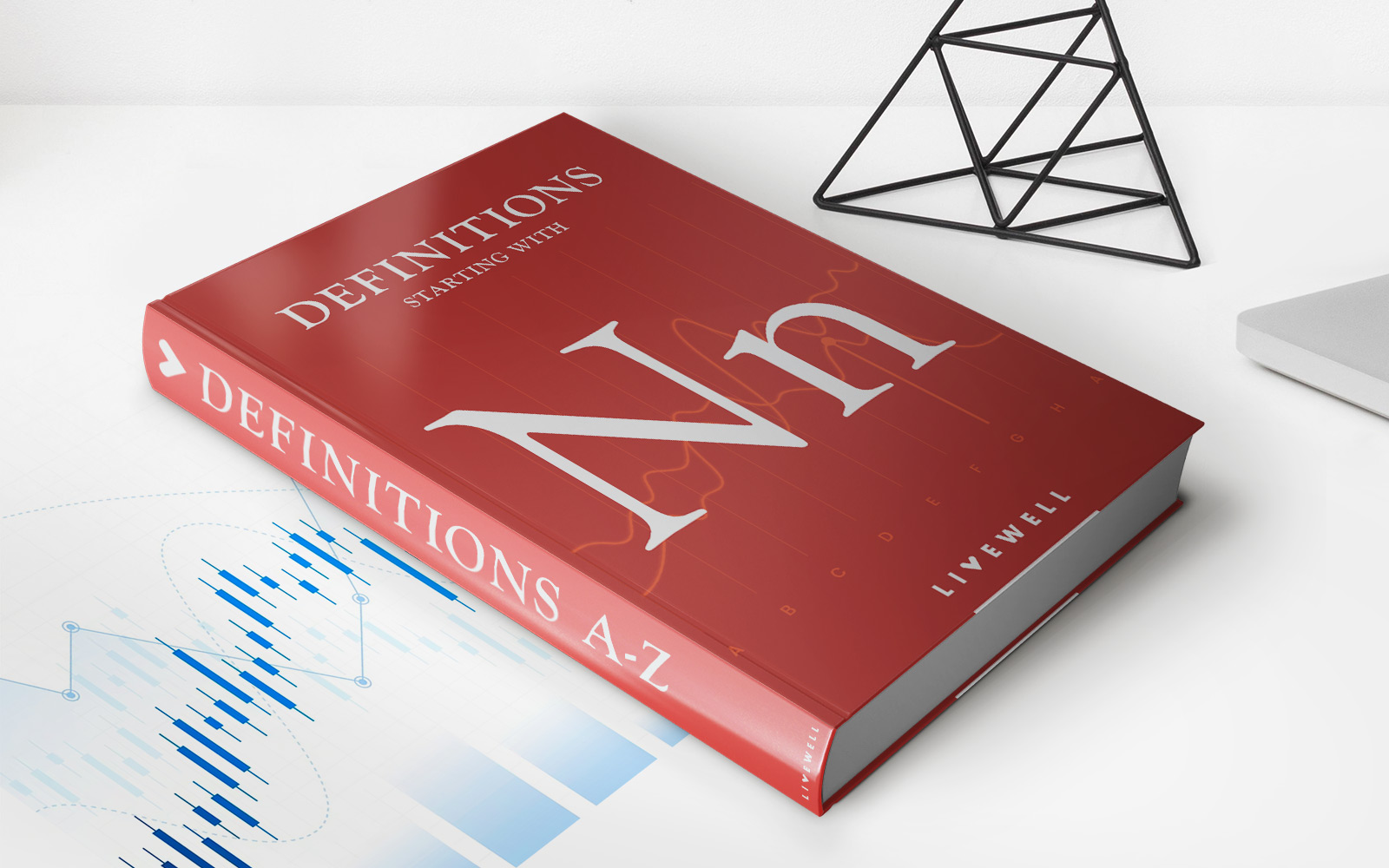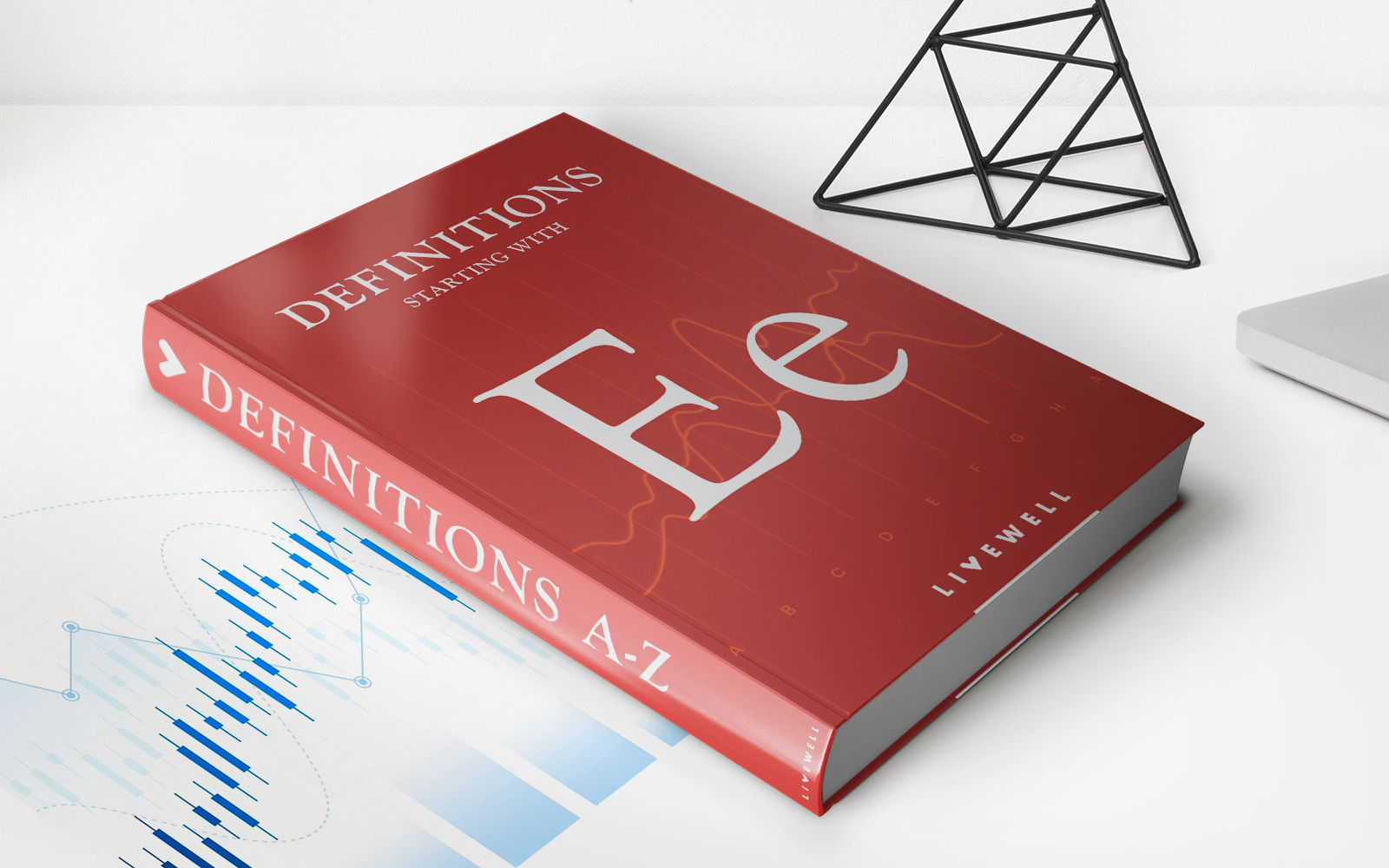

Finance
What Is A Non-Revolving Credit Loan
Published: February 29, 2024
Learn about non-revolving credit loans and how they can impact your finances. Understand the benefits and drawbacks of this type of loan and make informed financial decisions.
(Many of the links in this article redirect to a specific reviewed product. Your purchase of these products through affiliate links helps to generate commission for LiveWell, at no extra cost. Learn more)
Table of Contents
Introduction
Understanding Non-Revolving Credit Loans
Non-revolving credit loans play a pivotal role in the realm of personal and business finance. Unlike revolving credit, which offers a continuous line of credit that can be used repeatedly as long as the borrower stays within the credit limit, non-revolving credit loans provide a one-time lump sum of money that is repaid over a predetermined period. These loans are characterized by fixed terms, fixed monthly payments, and a finite end date, offering predictability and structure to both borrowers and lenders.
Non-revolving credit loans are widely utilized for major expenses such as auto purchases, home improvements, higher education, and large-scale business investments. They are instrumental in facilitating substantial financial undertakings that may not be feasible through revolving credit options. Understanding the nuances of non-revolving credit loans is essential for individuals and businesses seeking to make informed financial decisions and effectively manage their resources.
In the following sections, we will delve deeper into the intricacies of non-revolving credit loans, exploring the various types available, their advantages and disadvantages, the qualification criteria, and key considerations for potential borrowers. By gaining a comprehensive understanding of non-revolving credit loans, readers will be equipped to navigate the financial landscape with confidence and prudence.
Understanding Non-Revolving Credit Loans
Non-revolving credit loans, also known as installment loans, are a fundamental component of the lending industry. These loans are designed to provide borrowers with a specific amount of money upfront, which is repaid over time through fixed monthly installments. Unlike revolving credit, where the available credit replenishes as the borrower makes payments, non-revolving credit loans do not replenish once they are repaid. This fundamental distinction makes non-revolving credit loans a structured and predictable borrowing option.
One of the defining characteristics of non-revolving credit loans is their fixed terms. This means that the loan amount, interest rate, and repayment schedule are predetermined and do not fluctuate over the life of the loan. As a result, borrowers have a clear understanding of their financial obligations and can plan their budgets accordingly. Additionally, non-revolving credit loans often have a defined end date, providing borrowers with a clear timeline for debt repayment.
These loans are commonly used for specific, one-time expenses, such as purchasing a car, financing a home renovation, or covering the cost of higher education. The structured nature of non-revolving credit loans makes them an attractive option for both borrowers and lenders. Lenders benefit from the assurance of regular, fixed payments, while borrowers appreciate the transparency and stability of the repayment process.
Non-revolving credit loans are available from a variety of sources, including banks, credit unions, and online lenders. The terms and conditions of these loans can vary widely, so it is essential for borrowers to carefully evaluate their options and choose a loan that aligns with their financial goals and capabilities.
By understanding the mechanics of non-revolving credit loans, borrowers can make informed decisions about their borrowing needs and confidently pursue financing options that best suit their circumstances.
Types of Non-Revolving Credit Loans
Non-revolving credit loans encompass a diverse array of borrowing options, each tailored to specific financial needs and circumstances. Understanding the different types of non-revolving credit loans is essential for individuals and businesses seeking financing for major expenses. Below are some common types of non-revolving credit loans:
1. Personal Loans:
Personal loans are unsecured installment loans that can be used for a wide range of purposes, including debt consolidation, home improvements, medical expenses, and unexpected emergencies. These loans typically have fixed interest rates and terms, making them a predictable and accessible financing option for individuals.
2. Auto Loans:
Auto loans are specifically designed to finance the purchase of a vehicle. Lenders offer fixed-rate installment loans with predetermined repayment periods, allowing borrowers to spread the cost of a car over time while enjoying the benefits of ownership.
3. Student Loans:
Student loans are non-revolving credit loans that enable individuals to finance their higher education expenses. These loans often have favorable terms and flexible repayment options to accommodate students as they pursue their academic endeavors.
4. Mortgages:
Mortgages are long-term non-revolving credit loans used to finance the purchase of real estate. With fixed or adjustable interest rates and extended repayment periods, mortgages enable individuals and families to own homes while spreading the cost over several decades.
5. Business Loans:
Businesses can access non-revolving credit in the form of term loans to fund expansion, equipment purchases, working capital, and other operational needs. These loans offer structured repayment schedules and are tailored to support the growth and stability of businesses.
Each type of non-revolving credit loan serves distinct financial objectives and carries unique terms and conditions. By exploring these options, borrowers can identify the most suitable loan for their specific needs and make informed decisions about their borrowing strategies.
Pros and Cons of Non-Revolving Credit Loans
Non-revolving credit loans offer distinct advantages and considerations that borrowers should carefully weigh when evaluating their financing options. Understanding the pros and cons of these loans is crucial for making informed financial decisions. Below are the key advantages and considerations associated with non-revolving credit loans:
Pros:
- Predictable Repayment: Non-revolving credit loans provide borrowers with fixed repayment schedules, making it easier to budget and plan for monthly payments.
- Structured Terms: These loans come with predetermined terms, including loan amounts, interest rates, and repayment periods, offering clarity and transparency throughout the borrowing process.
- Specific Purpose: Non-revolving credit loans are often tailored to finance specific expenses, such as purchasing a car, funding home improvements, or covering educational costs, ensuring that the borrowed funds are used for their intended purpose.
- Potential for Lower Interest Rates: Depending on the borrower’s creditworthiness and the prevailing market conditions, non-revolving credit loans may offer competitive interest rates compared to revolving credit options.
- Building Credit History: Responsible repayment of non-revolving credit loans can contribute to a positive credit history, potentially improving the borrower’s credit score over time.
Cons:
- Limited Flexibility: Non-revolving credit loans do not offer the flexibility of revolving credit lines, as the borrowed amount is disbursed upfront and cannot be reused once repaid.
- Collateral Requirements: Some non-revolving credit loans, such as mortgages and auto loans, may require collateral to secure the loan, posing a risk to the borrower’s assets in the event of default.
- Potential Prepayment Penalties: Certain non-revolving credit loans may impose penalties for early repayment, limiting the borrower’s ability to pay off the loan ahead of schedule without incurring additional costs.
- Application and Origination Fees: Lenders may charge application fees and origination fees for non-revolving credit loans, increasing the overall cost of borrowing.
- Impact on Debt-to-Income Ratio: Taking on non-revolving credit loans can affect the borrower’s debt-to-income ratio, which may impact future borrowing capacity and financial flexibility.
By carefully evaluating the pros and cons of non-revolving credit loans, borrowers can make well-informed decisions that align with their financial goals and circumstances.
How to Qualify for a Non-Revolving Credit Loan
Qualifying for a non-revolving credit loan requires careful consideration of various factors that influence a lender’s decision to extend credit. Lenders assess the creditworthiness and financial stability of applicants to determine their eligibility for a non-revolving credit loan. Below are key considerations and steps to improve the likelihood of qualifying for a non-revolving credit loan:
1. Credit Score:
A strong credit score is a critical factor in securing a non-revolving credit loan. Lenders typically prefer applicants with good to excellent credit scores, as it demonstrates a history of responsible borrowing and repayment. Maintaining a healthy credit score by making timely payments and managing credit utilization can enhance eligibility for non-revolving credit loans.
2. Income and Employment Stability:
Lenders evaluate the income and employment stability of applicants to ensure they have the financial capacity to repay the loan. A steady source of income and consistent employment history can bolster an applicant’s qualifications for a non-revolving credit loan.
3. Debt-to-Income Ratio:
Lenders consider the debt-to-income ratio, which compares the applicant’s monthly debt obligations to their gross monthly income. A lower debt-to-income ratio indicates a healthier financial position and may improve the chances of qualifying for a non-revolving credit loan.
4. Collateral and Assets:
For certain non-revolving credit loans, such as mortgages and secured personal loans, applicants may need to provide collateral or demonstrate valuable assets to secure the loan. Having assets that can be used as collateral can strengthen the application for these types of loans.
5. Credit History and Payment Records:
Lenders review the applicant’s credit history and payment records to assess their financial behavior. Consistent, on-time payments on existing debts and a history of responsible credit use can enhance the applicant’s creditworthiness and improve their chances of qualifying for a non-revolving credit loan.
6. Loan Application and Documentation:
Completing the loan application accurately and providing the required documentation, such as proof of income, identification, and financial statements, is essential for demonstrating the applicant’s eligibility and financial stability to the lender.
By addressing these key considerations and presenting a strong financial profile, applicants can enhance their qualifications for non-revolving credit loans and increase the likelihood of securing favorable loan terms.
Conclusion
Non-revolving credit loans serve as a vital financial tool for individuals and businesses seeking structured and predictable financing for specific needs. Understanding the mechanics, types, advantages, and considerations of non-revolving credit loans is essential for making informed borrowing decisions and managing financial resources effectively.
By offering fixed terms, predictable repayment schedules, and tailored financing for major expenses, non-revolving credit loans provide borrowers with a reliable means of achieving their financial goals. Whether it’s purchasing a car, funding home improvements, pursuing higher education, or supporting business initiatives, non-revolving credit loans offer a structured approach to borrowing that aligns with specific needs and circumstances.
However, it’s crucial for borrowers to carefully evaluate the pros and cons of non-revolving credit loans to determine their suitability for individual financial situations. While these loans offer stability and transparency, they may also come with limitations and considerations that impact the overall cost and flexibility of borrowing.
Qualifying for a non-revolving credit loan requires attention to various factors, including creditworthiness, income stability, debt-to-income ratio, and documentation. By addressing these considerations and presenting a strong financial profile, applicants can enhance their eligibility for non-revolving credit loans and secure favorable loan terms.
In conclusion, non-revolving credit loans play a valuable role in the financial landscape, offering a structured and purpose-driven approach to borrowing. By understanding the intricacies of these loans and evaluating their suitability in the context of individual financial goals, borrowers can make informed decisions that support their long-term financial well-being and enable them to achieve significant milestones with confidence.














